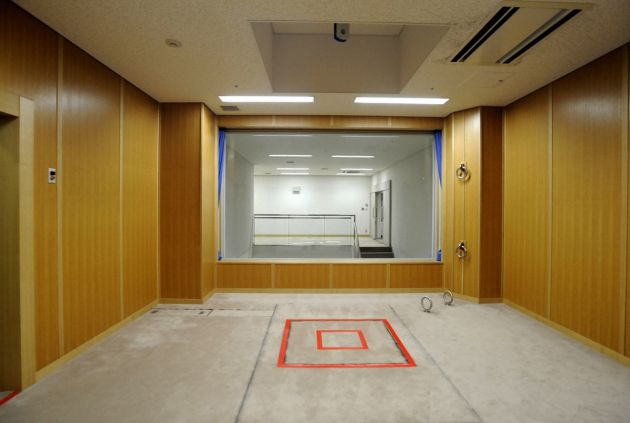Catholic Church teaching saying death penalty is 'inadmissible' has little initial reaction, but...

Pope Francis approval of the Catechism of the Catholic Church, with "a new understanding...of the significance of penal sanctions imposed by the State," now says "the death penalty is inadmissible."
There was little initial reaction as the word mulled over an announcment that was not totally surprising, but could it have an impact on the choice of a new justice for the U.S. Supreme Court?
The decision was announced by the Vatican's Congregation for the Doctrine of the Faith in a 'Letter to the Bishops' dated August 1 and signed by the Prefect, Cardinal Luis Francisco Ladaria, Vatican News reported.
The catechism now will read: "Recourse to the death penalty on the part of legitimate authority, following a fair trial, was long considered an appropriate response to the gravity of certain crimes and an acceptable, albeit extreme, means of safeguarding the common good.
"Today, however, there is an increasing awareness that the dignity of the person is not lost even after the commission of very serious crimes.
"In addition, a new understanding has emerged of the significance of penal sanctions imposed by the state. Lastly, more effective systems of detention have been developed, which ensure the due protection of citizens but, at the same time, do not definitively deprive the guilty of the possibility of redemption," the new section continues."
The change addresses several sentences of the catechism, the Catholic compendium of its beliefs, and it clearly elaborates the church's opposition to a policy that is heavily debated around the world and used in parts of the United States, The Washington Post reported.
The church's updated teaching states that capital punishment is "inadmissible because it is an attack on the inviolability and dignity of the person."
Previously, the church allowed for the death penalty in very rare cases, only as a means of "defending human lives against the unjust aggressor."
America, the Jesuit Review wrote, "His statement is sure to be welcomed by bishops' conferences and the overwhelming majority of the Christian faithful around the world, many of whom have long called for the church to take this stance.
"His predecessors have been slowly moving towards the position taken today by Francis. aEvery pope since St. John XXIII has appealed to governments worldwide on behalf of persons condemned to death, asking for clemency."
Daniel Burke, CNN's religion editor wrote, "Pope Francis earned a standing ovation when he told (the U.S.) Congress in 2015 that he supports protecting human life 'at every stage of its development.' When he added that 'this conviction' includes working to end the death penalty, the response was far more subdued.
"'You didn't see people jumping up and clapping,'" said John Carr, who was in the room, and is director of Georgetown University's Initiative on Catholic Social Thought and Public Life."
Burke said, however, "The church's shifting position on capital punishment may even arise later this year when the Senate holds confirmation hearings for Brett Kavanaugh, a federal judge and faithful Catholic whom President Donald Trump has nominated for a seat on the Supreme Court."
He said the Catholic Church's shifting position on capital punishment may even arise later this year when the U.S. Senate holds confirmation hearings for Brett Kavanaugh, a federal judge and faithful Catholic whom President Donald Trump has nominated for a seat on the Supreme Court.
America Magazine quoted Nebraska Governor Pete Ricketts, a Catholic, pro-life Republican, saying the change in the catechism would have no impact on policy in his state. It cited The New York Times reporting that the governor has said that he viewed his position on the death penalty as compatible with church teaching.
He issued a statement in response to the Aug. 2 announcement. "While I respect the Pope's perspective, capital punishment remains the will of the people and the law of the state of Nebraska," Ricketts said. "It is an important tool to protect our corrections officers and public safety."